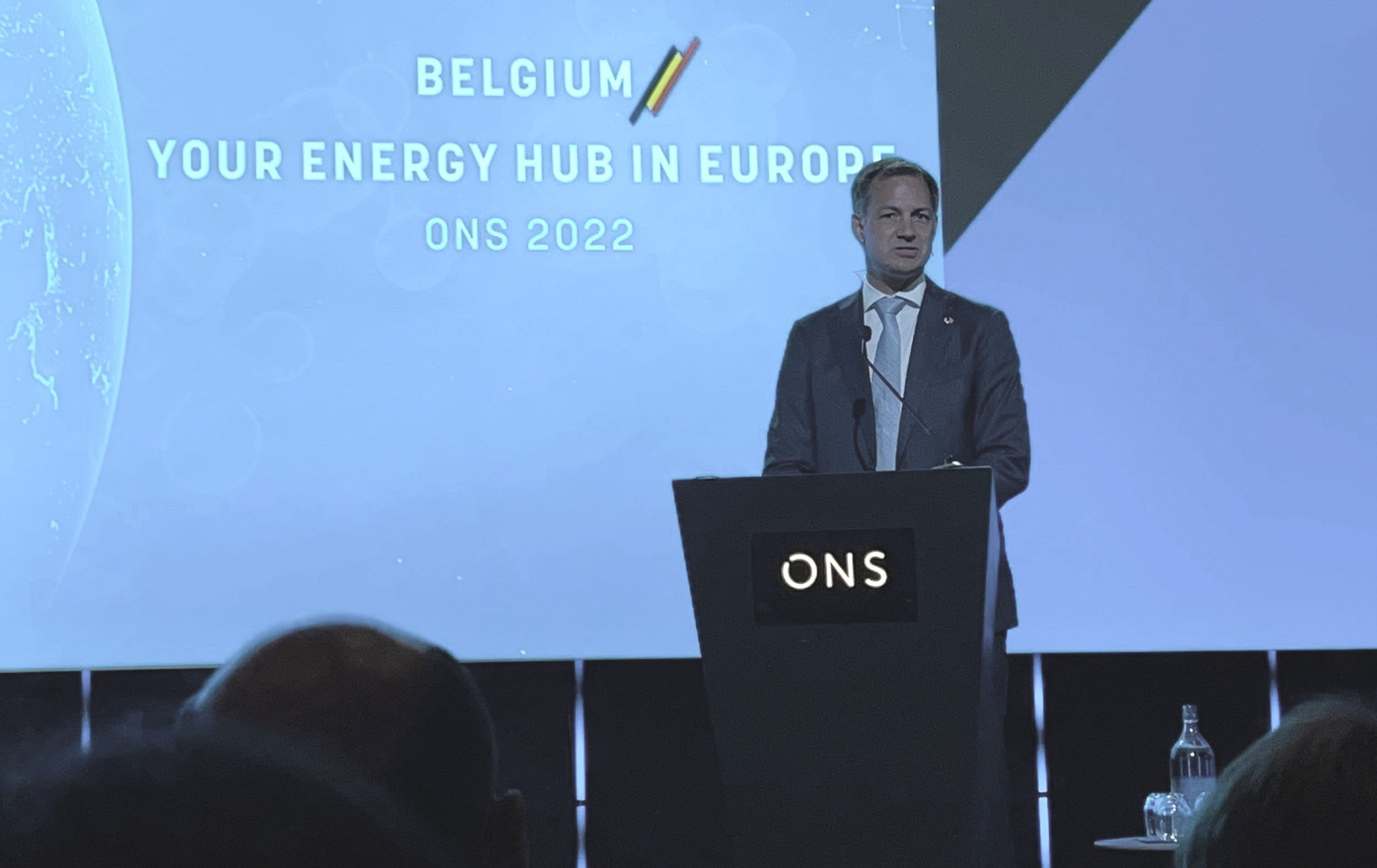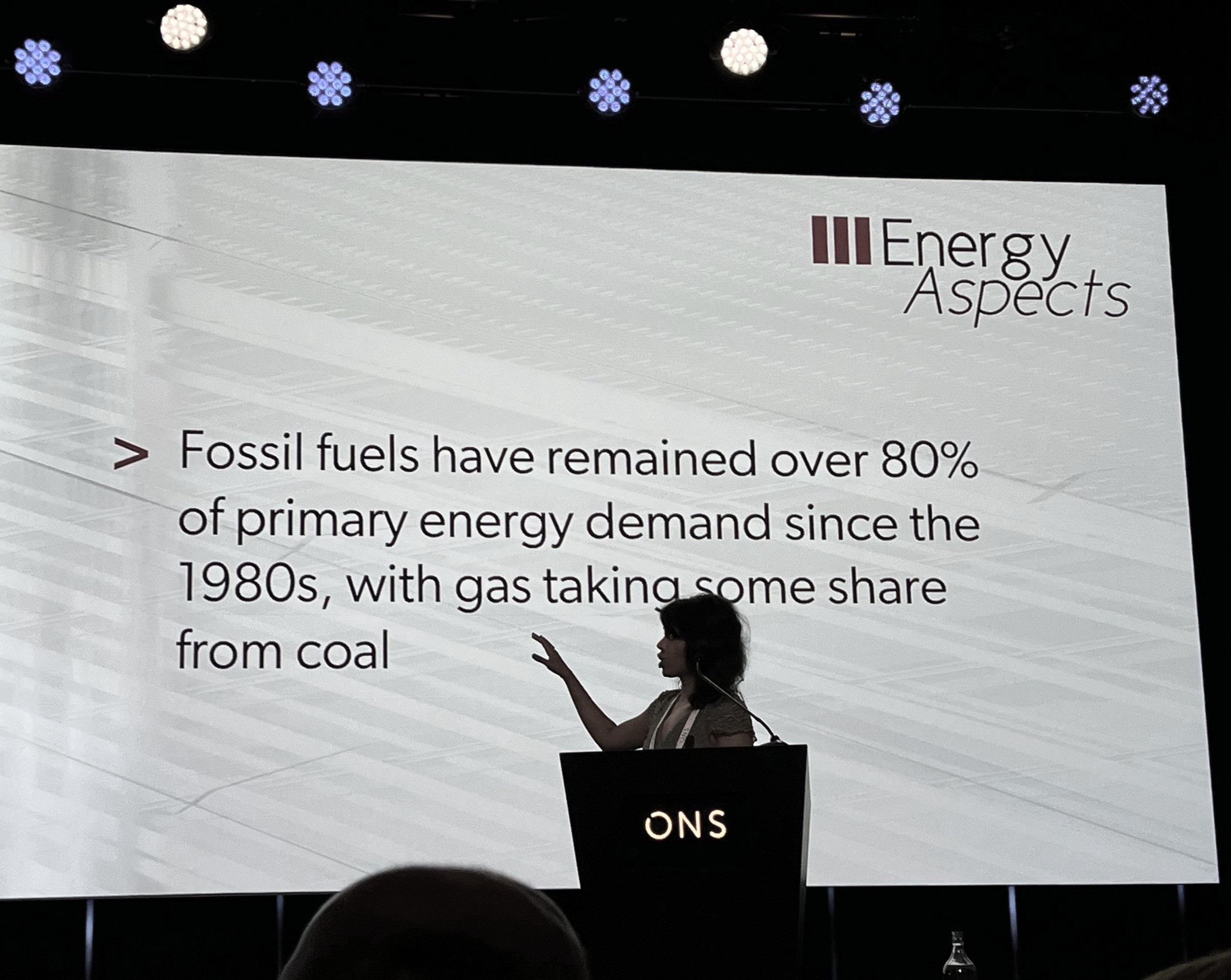Europe took energy for granted. It was a mistake.
By Sidsel Lindsø // CEO of ExploCrowd
Six years ago, I sat with Farouk Al-Kasim, discussing how I was to keep ExploCrowd a solid rock in a cyclic market with an expectation that we would see more rapid and extreme up- and downturns in the energy industry. Even so, I will honestly admit that I did not expect the speed and the extremes we are seeing now.
Two years ago, when world oil consumption dropped by 20% from 100 million barrels per day to 80 million barrels per day, and with increased focus on ESG and the EU taxonomy many thought that the end of oil and gas consumption had come. At one point in the spring 2020, the price of the WTI oil was even negative (I predicted this and made an ever-lasting impression on our reservoir engineer). And in contrast, today, the volatile oil price has stabilised around 95-120 USD/barrel and E&P companies are earning more money than ever before in the history of our industry. That is extreme change in a very short timeframe.
Did we take the energy supply for granted? Yes. But there is also a WE in the solution to our current crisis.
The dark clouds in the horizon
The ONS energy conference in Stavanger left me with a sobering impression. It is a deep feeling of sorrow mixed with a feeling of hope, as I will explain in the following.
The Belgian Prime Minister Alexander De Croo’s talk made the deepest impression on me. He said:
“With these gas prices, we are looking at a rapid
de-industrialisation of Europe”
“To me, this energy crisis is more serious than the pandemic”
Alexander De Croo, Prime Minister of Belgium
Prime Minister De Croo is deeply concerned with the unfairness that people in Europe will experience when energy bills force them to shut down their businesses and leave their homes, and with others benefiting from the grave situation.
His deepest wish is to stabilise Europe. This will however take years, as we need to build a diverse energy supply to replace the Russian gas, which we unfortunately became dependent on. Prime Minister De Croo said more people will be pushed into the low-income category the next two years, and we must do our best to protect them.
My main concern, as it has been for many years now, is to ensure the democracy of Europe, which has been under attack by Putin for a long time (Brexit and Trump election campaign involvement especially).
Ukrainian President Volodymyr Zelenskyj joined the Offshore Northern Seas (ONS) Conference live by video-link from Kyiv.
WHY DOES THE CURRENT SITUATION COME AS A SURPRISE TO SO MANY?
In my view, it is all really about the power of popular opinion and social media.
During the Norwegian election exactly one year ago, the main topic was to stop exploration for more oil and gas.
Weeks later, Europe saw the first signs of an energy crisis.
This was further strengthened by Russia’s invasion of Ukraine in February.
At that point, Russia had strategically ensured that European gas storages ran low, and the energy situation would only get worse from there.
Again, as pointed out by Prime Minister De Croo (an economist, a liberal and a strong believer in the free market), gas prices are now at such a level that the market is broken.
And furthermore, Russia is burning 10 million cubic meters of gas per day, just outside Finland borders, allegedly to apply pressure and destabilise Europe further.
Market regulations are on their way, but still: What most people do not seem to realise, is that the world's energy supply is mostly based on fossil fuels. In fact, more than 80 percent of our energy supply is fossil – and it will most likely not go below 50 percent at any point in time for the next 50 years.
But even though the underinvestment in oil and gas plays a role in the energy supply crisis, the current situation is mainly an inconvenient fallout of the invasion of Ukraine.
Amrita sen from Energy aspects highlighted in the session on co-existense in the market that the use of oil, gas and coal in the energy supply has only changed little over the last 40 years
The power of popular opinion insights
Remember Brexit? I do. I remember that someone tried to condense an extremely complex situation and historically close ties down to a simple ‘yes’ or ‘no’. Slogans like “Let’s take back control” and politicians focusing on their own wealth and power over the well-being of their population, managed to convince people that the EU was to blame. An easy task really, when you consider that UK politicians have been blaming the EU for most of their problems over the last two to three decades. It was an easy message to sell. Today, the country has ended up in a situation where many Britons suffer from the consequences – and especially those who suffered already.
Can the same happen here in Norway? If the popular opinion is to stop oil and gas exploration and production – will the message win, no matter the consequences?
In Denmark, my homeland and an allegedly Green Nation, 60 percent of the energy supply is provided by coal, oil, and natural gas. “But they claim to be 100 percent green?!”, one might object. With the answer being: Yes, but what Denmark often forgets to specify, is that their 100 percent green-message is only in regards to their electricity. Also, the country has a lot of coal fired power plants being converted to ‘green sustainable energy’ or ‘biofuels’ which means they are burning rainforest trees from Brazil and the woods of Estonia. Why? Because it fits the narrative and self-esteem of the nation. And of course, it is good branding.
I encourage politicians and media to get more insights of the energy security issue. All other countries have energy security as their top strategic priority. This is especially the case for China in case you have not noticed. From what I have seen myself and been aware of, it has been so for at least 15 years, probably longer.
The European Dugnad: Stronger together
Democracy and freedom are Putin’s biggest threats. His narrative is that democracy is a failure, otherwise he and his kleptocrats would not be able to keep his own people in poverty the way they have.
The energy supply crisis will cause uproars across Europe. Now is not the time for irresponsible politicians to feed the popular opinion and some over-optimistic forecasts. Now is the time for building trust.
Since World War II, Europe has built institutions for collaboration and with the purpose to build trust. I am a true believer in the power of a united Europe and the concept “Stronger together”. And I support an Energy NATO as Nick Butler has proposed recently (he also predicted this situation more than two years ago).
In the early stages of the pandemic, Norwegian Prime Minister Erna Solberg mobilized the entire population by one Norwegian word: Dugnad. It means “voluntary participation in fixing this, together”.
Now more than ever, Europe needs a dugnad.
Now is not the time for irresponsible politicians to feed the popular opinion and some over-optimistic forecasts. Now is the time for building trust.
The EU is taking action – and has been for a long time
Already in May, the EU stated their plan to end import of Russian oil and gas as a response to the invasion of Ukraine. They also informed that energy consumption had to be reduced by 13 percent and that it was likely that rationing of energy would have to be implemented. This was even highlighted by Cristian Silviu Bușoi from the European Parliament at the energy political conference in Sandefjord, but as I recall – no media picked it up.
In June, Frans Timmermans, the Vice President of the European Commission, the right hand of Ursula von der Leyen and the man responsible for The Green Deal, asked Norway to produce more oil and gas, and to explore for more oil and gas, to ensure a reliable supply of energy to Europe in the future. I have not seen this covered by the media either.
Since then, Norway has increased production by 8 percent and is now delivering more gas to Europe than Russia.
In July, EU members volunteered to reduce energy consumption by 15 percent by next winter. I have not noticed any governments sharing this decision – maybe they are waiting till after the summer vacation to tell everyone?
And in the end of August, this is how President of the European Commission Ursula von der Leyen is setting the direction:
"Will the rule of power replace the power of rules?
It depends on the power of democracy.
On our capacity to uphold core principles.
Resist aggression.
Protect our values and our friends.”
Ursula von der Leyen, President of the European Commission
Going forward without losing hope
Another quote from the Belgian Prime minister:
“We need more diversity in our energy supply in order to get back to a stabilised Europe”.
Don’t lose hope. The solution is not far away, and we have all the tools available; the competence, potential and capacity to fix this situation.
Diversity means we have been resting too much on oil and gas. But including more energy sources does not mean that we should choose one or the other. We need them all. And we need to diversify – extremely fast.
The Norwegian Prime Minister Jonas Gahr Støre said:
“We started with hydropower and moved into oil and gas. Now we will move further, and into offshore wind. It will happen”. This is just another chapter of Norway being the big battery for Europe.
We need to invest in more solar energy, better efficiency of hydropower, probably nuclear (though I don’t like it because they haven’t yet resolved how it is possible to securely store the nuclear waste), more offshore wind, more oil and gas - and we need to do this together. Even President of Ukraine Zelenskyy invited the energy industry to invest in his country, to meet the energy needs of Europe and to stabilise this part of the world.
For those who are worried about climate change and reduction of emissions, I can assure you that at the ONS conference there was a strong commitment to store the CO2 and secure as responsible production of oil and gas as possible. And hey, even Elon Musk said that we need more oil and gas now, so there must be something about it.
Yes, dark clouds are looming on the horizon for the next 18 to 24 months, but I am hopeful.
Yes, Europe screwed up because we took energy for granted (and we trusted the wrong guy, but his people deserves a chance).
I sense such a strong WE!
WE are in this together.
WE will find solutions together.
I think WE will end up with a more stabilised and closer connected Europe. A stronger Europe.
In the words of Karl Johnny Hersvik, CEO of AkerBP:
“Let’s not waste this crisis, let’s get a plan together and execute the hell out of it!”
We made it through the pandemic, and we can do this too, because of the solidarity that is so deeply ingrained in most of us. We can all reduce our electricity consumption to help businesses survive, to make sure that the production industry has the energy available that it needs, to secure the jobs of their people. This is serious.
And as NATO chief Jens Stoltenberg said it, so rightly:
“And then remember one thing: Yes we pay a price, but the price we pay as the European Union, as NATO, is the price we can measure in currency, in money. The price they pay is measured in lives lost every day. So we should stop complaining and step up and provide support. Full stop.”





